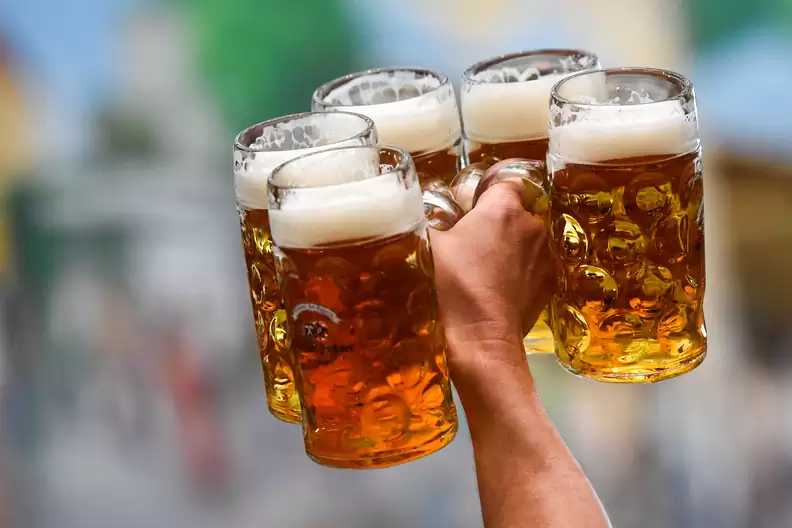It’s the foam-topped pride of a beer-crazy country. This year marks the 500th anniversary of the German Reinheitsgebot, or purity law, the world’s oldest food safety law still in force. The law restricts German beer brewers to using only four ingredients: malt, hops, yeast, and water. Do you know what the Bavarian Purity Law is?
In 1516, Germany passed the Reinheitsgebot law, which stated that beer could only be made with water, barley, and hops. This was due to sanitation concerns and unscrupulous brewers occasionally adding hallucinogenic plants to their brew.
What is the Bavarian Purity Law?
For over 500 years, German beer has been brewed by the purity law. German brewers have created an unrivaled variety of beers using the four ingredients prescribed in this law. Germany now has over 5,000 different beers.
A German proverb that translates loosely as “Hops and malt for beer, may God preserve them here” refers to the basic ingredients used in beer brewing. These ingredients were established in 1516 by the so-called purity law in the Bavarian city of Ingolstadt. The purity law states that beer must be made with nothing but barley, hops, and water. The yeast’s significance was unknown then, and it was added later. The purity law initially applied only to the Duchy of Bavaria, but it was gradually adopted by the German states and has governed beer brewing in Germany since 1906. (Source: Alumni Portal)
The Art of Brewing Beer
The purity law has spawned a world-renowned brewing art over the centuries. Today, over 1,300 German breweries use only four natural ingredients to produce over 40 different types of beer like Alt, Pils, Kölsch, and approximately 5,000 individual beer brands such as Veltins, Krombacher, and Bitburger. This diversity is unparalleled in the world. Dr. Hans-Georg Eils, president of the German Brewers Federation, and Friedrich Düll, president of the Bavarian Brewers Federation, are convinced that the purity law is why Germany is still regarded as the undisputed beer nation. (Source: Alumni Portal)
Beer as a Cultural Heritage
As a result, the purity law not only preserves a traditional craft technique, beer brewing, but it is also considered the world’s oldest food law that is still in effect today.
However, according to Günter Thömmes, it would be exaggerated to conclude that the purity law was enacted as early as the 16th century to protect consumers from potentially hazardous ingredients. The brewery owner has two degrees in brewing and has traveled the world for 20 years in beer matters.
The primary motivation behind the purity law was to keep undesired competitors out and maximize profits. The rulers of the late Middle Ages were not concerned with consumer protection or health awareness.
Gunther Thommes, Brewert Business Owner
(Source: Alumni Portal)
The World Famous German Beer
German beer is in high demand abroad. The main export markets for German brewers are Italy, France, and the Netherlands, but they also see encouraging trends in China and the United States.
Many people in other countries associate beer with Germany, and because Germans adore beer, they celebrate Beer Day every year on April 23. (Source: Alumni Portal)
Image from Thrillist
